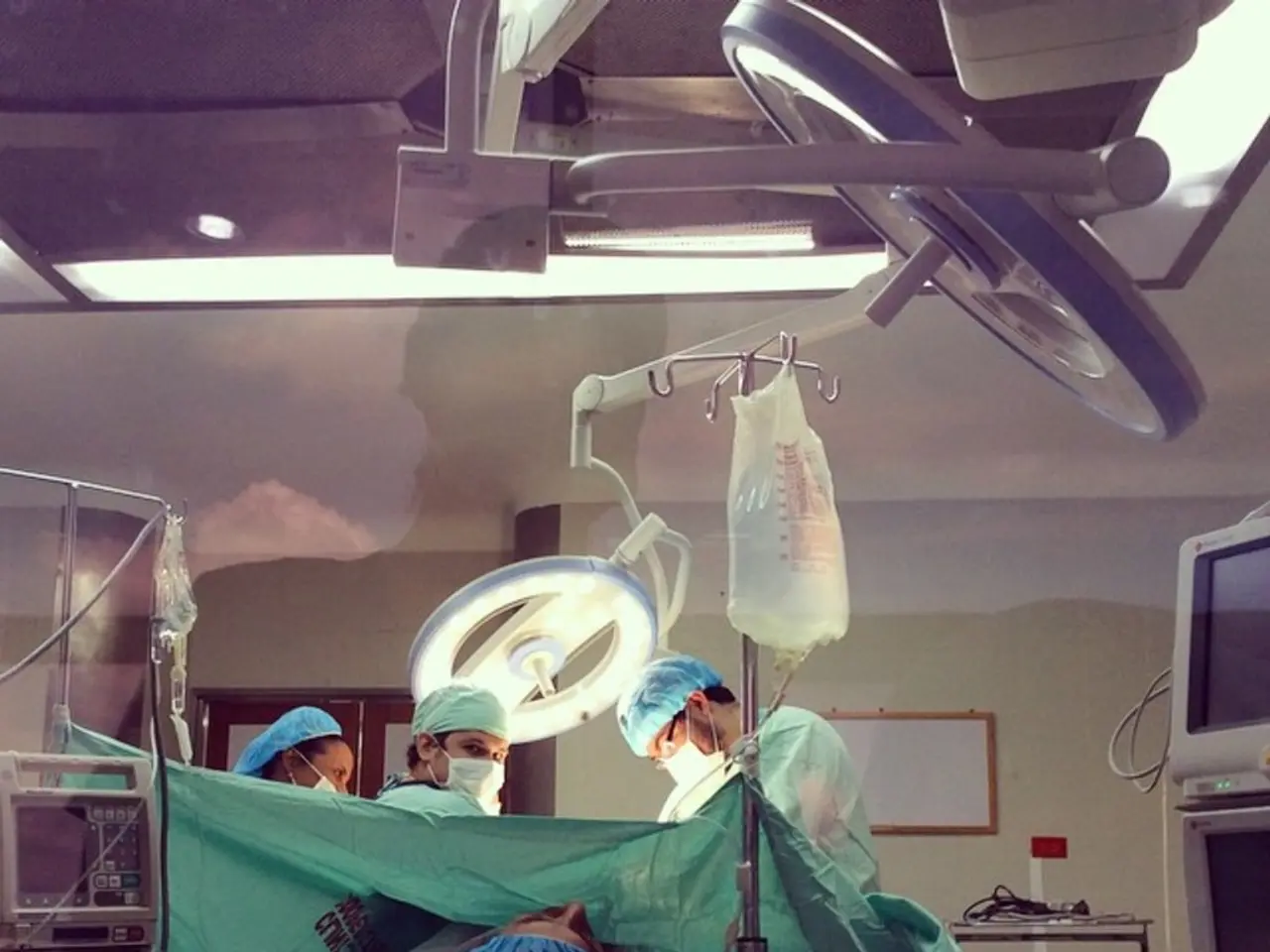Surgical Apprehension: Strategies for Cope and Additional Advice
Preoperative anxiety, a common experience for individuals undergoing surgical procedures, can be managed effectively using a combination of psychological interventions, relaxation techniques, education, and supportive communication.
Understanding anxiety as a protective mechanism that increases heart rate and blood pressure can help in managing it. By adopting a multifaceted approach, healthcare providers can significantly reduce patient anxiety and improve both patient and family experiences.
Key strategies include psychological support and verbal reassurance, offering open, clear communication about the surgical process. This approach also helps family members who may feel anxious. Relaxation techniques such as mindfulness, deep breathing exercises, meditation, and music therapy are shown to lower anxiety by calming physiological stress responses. Music therapy before, during, and after surgery reduces heart rate, cortisol levels, pain, and anxiety.
Preoperative education and counseling are also crucial. Providing detailed information about what to expect during and after surgery, including anesthesia and recovery, helps patients feel more in control and less fearful. One-on-one counseling for highly anxious patients is beneficial.
Involving support networks, encouraging family and close friends to be part of the preparation process, offers emotional security and helps reduce anxiety. Physical preparation, optimizing nutrition, exercise, and stopping smoking, also indirectly reduce anxiety by enhancing overall well-being and confidence.
Nonpharmacological interventions, particularly important in pediatric populations but also applicable to adults, include distraction techniques and touch therapy to create a calming environment. Pharmacological options, such as benzodiazepines, melatonin, or sedatives, may be prescribed when needed, though nonpharmacological approaches are preferred as first-line measures.
Keeping the wait time as short as possible and making the hospital stay pleasant for those undergoing surgery can help reduce anxiety. It's also important to gather information about the surgery beforehand, such as what it entails, possible complications, and expected outcomes, to ease anxiety.
Preoperative anxiety can cause several physical changes in the body, such as an increase in the release of hormones, increase in body temperature, episodes of tachycardia, electrolyte and fluid imbalance, hypertension, reduced immune response, increased wound healing time, and may require an increase in the dosage of sedatives and anesthetics.
Postsurgery anxiety can result in issues with mental health, including depression or an overall low mood, loss of energy, difficulty in making decisions, sleep disturbances, and loss of interest or pleasure in activities that were enjoyable before. Postsurgery anxiety is linked to complications. Higher levels of presurgery anxiety can increase the level of postoperative pain and discomfort during recovery.
Talking about anxieties with family, friends, and healthcare professionals may provide relief for some people. The causes of preoperative anxiety can include fear of the unknown, long-term complications, risks associated with general anesthesia, the recovery lasting a long time, and the possibility of life-ending.
Listening to music before surgery, using essential oils (aromatherapy), and acupuncture can also help reduce anxiety. Keeping these strategies in mind, healthcare providers can work together with patients to create a personalised plan to manage and reduce preoperative anxiety, ensuring a smoother surgical experience for all involved.
References:
[1] BMC Anesthesiology. 2015; 15: 177. [2] Journal of Clinical Psychology in Medical Settings. 2012; 20(1): 49-60. [3] Journal of Psychosomatic Research. 2008; 64(6): 583-588. [4] International Journal of Nursing Studies. 2015; 52(5): 753-763. [5] Anesthesia & Analgesia. 2006; 103(1): 14-22.
Incorporating a multifaceted approach that includes psychological support, verbal reassurance, and education about the surgical process can help manage preoperative anxiety, a common experience for individuals undergoing surgery. By encouraging family and friends to be part of the preparation process, support networks are formed, offering emotional security and reducing anxiety. Music therapy, aromatherapy, and acupuncture also demonstrate potential in reducing anxiety before, during, and after surgery.




